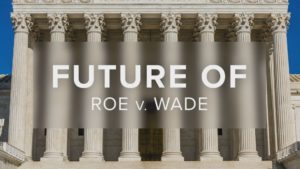
On Friday, the Supreme Court, in a 6-3 decision, overturned the Roe v. Wade (1973) and Planned Parenthood of Southeastern Pennsylvania v. Casey (1992) decisions. These rulings had preempted certain state restrictions on pregnancy termination. Considering today’s majority opinion in Dobbs v. Jackson Women’s Health Organization, states will have greater authority to implement laws affecting pregnancy termination.
Now, employers across the country are grappling with what to do about Roe v. Wade being overturned. It is generally recommended that employers refrain from giving definitive answers on the impact of the decision on health insurance coverage for abortions. It is reasonable for employers to state they are studying the issue and will provide more specific guidance as promptly as possible. Ultimately, this Supreme Court decision will likely impact workplace policy deliberations. Employers will need to continue navigating local, state, and federal laws and regulations regarding abortion.
What Now?
- A recent SHRM survey found that some companies may add coverage of travel expenses to obtain medical procedures—including abortions—not available nearby or consider changes to parental leave and caregiving benefits. It could become increasingly common for employers to have some sort of health care access policies in place to help employees travel where needed to obtain medical care. Several major companies have already announced that they will cover abortion-related travel expenses, including Amazon, Citigroup, Disney, Apple and Levi Strauss.
State laws may contain restrictions on aiding and abetting abortion, and whether or not companies violate that law by helping individuals travel out of state to obtain a legal abortion is still an open question. Self-insured companies are subject to ERISA, rather than state law, and have broad flexibility in structuring health benefits. Fully insured health care plans are subject to state regulations and have less flexibility in benefits design.
- There will likely be discussion about the decision among employees. It is neither practical nor desirable to attempt to shut down the discussions, independent of any potential legal rights employees may have for such discussion. Some of the conversations may become contentious, which may lead to workplace disruptions. In this case, address the disruptions by focusing on the disruption and not the point of view. While employers generally should avoid the content causing the disruption, there are exceptions. If employees post or make discriminatory comments, employers need to address them especially if they go against company policy.
We may see a new patchwork of state laws that will impact everything from what types of benefits employers can offer to questions about data privacy, efforts to maintain a positive workplace culture, and even the extraterritorial application of criminal laws on companies themselves. This could be a rocky road as companies develop new policies that comply with various legal obligations that will be changing quickly.
It’s important that employers stay in touch with this changing landscape. Please reach out to your HR Consultant for recommendations on navigating this in the coming months.


0 Comments